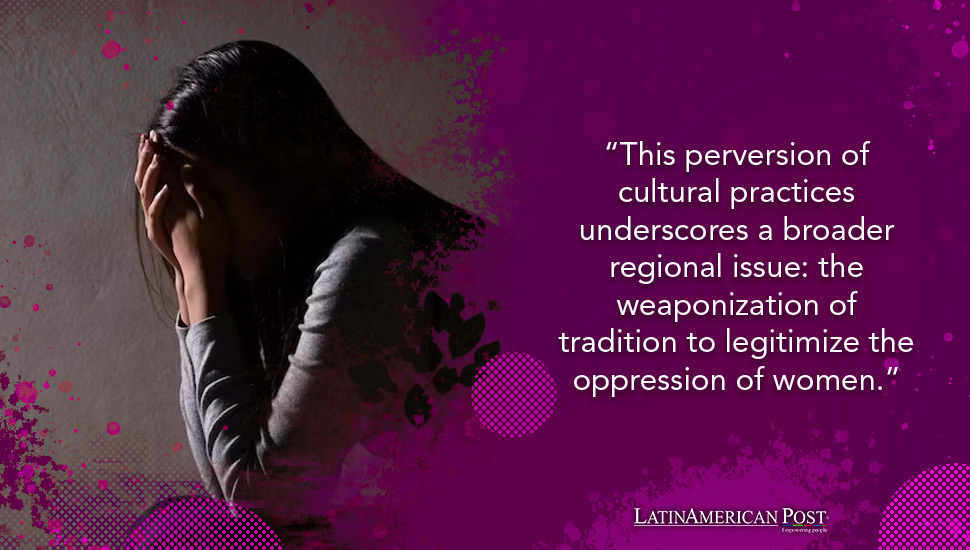Unearthing Injustice: Confronting Violence and Tradition in Latin America

The recent sentencing in Bolivia for a woman’s sacrificial offering to Pachamama ignites a broader discourse on the intersection of tradition and violence against women in Latin America. This piece argues against such anachronistic practices, advocating for a reevaluation of customs ingrained with gender violence.
In a chilling incident that encapsulates the darkest intersections of tradition and gender violence, two men in Bolivia were recently sentenced for the horrific act of burying a woman alive, purportedly as an offering to Pachamama, the Andean Mother Earth. This appalling case not only highlights the extreme manifestations of violence against women but also compels us to scrutinize the cultural underpinnings that facilitate such brutality. As we delve into this complex tapestry, we encounter a pervasive legacy of patriarchal norms and archaic beliefs that perpetuate women’s subjugation across Latin America.
Tradition Versus Modernity
At the heart of this discourse lies a critical examination of how traditional practices can sanction violence when misinterpreted or twisted. The reverence for Pachamama in Andean culture, a symbol of nurturing and life, has been contorted into a justification for an unthinkable crime. This perversion of cultural practices underscores a broader regional issue: the weaponization of tradition to legitimize the oppression of women. Throughout Latin America, similar narratives unfold, where age-old customs become shields for gender-based violence, demanding a rigorous reevaluation of how these traditions are preserved and practiced.
The incident in Bolivia is not an isolated anomaly but a reflection of a more significant, systemic problem that spans the continent. From the femicides in Ciudad Juárez, Mexico, to the high rates of gender-based violence in Central America, the region grapples with a deep-seated legacy of misogyny and discrimination. The intertwining of cultural heritage and patriarchal violence manifests in various forms, be it through the guise of honor killings, witch hunts, or ritualistic sacrifices, revealing a sinister underbelly of societal norms that valorize male dominance at the expense of women’s safety and dignity.
Challenging Anachronistic Beliefs
To dismantle these entrenched norms, there must be a concerted effort to challenge and reinterpret anachronistic beliefs that perpetuate gender violence. Education is pivotal in this transformation, fostering a cultural shift towards gender equality and respect for women’s rights. Activists and feminists across Latin America have been at the forefront of this battle, advocating for legal reforms, public awareness campaigns, and grassroots mobilization to eradicate the cultural roots of gender violence.
Governments and civil society in Latin America must take a proactive stance in addressing these issues. The legal system, as demonstrated by the sentencing in Bolivia, can be a powerful tool in delivering justice and signaling societal condemnation of gender-based violence. However, legal actions alone are insufficient. A holistic approach must include educational reforms, social welfare programs, and community engagement to alter the gender norms that fundamentally underpin societal structures.
Forging a New Path
As Latin America stands at the crossroads of tradition and modernity, it faces the challenge of preserving cultural heritage while rejecting violent and oppressive practices. The path forward requires a nuanced understanding of artistic practices, distinguishing between those that enrich societal values and those that perpetuate harm. The region can honor its rich traditions by fostering a culture of respect, equality, and justice while ensuring they do not become conduits for violence and oppression.
Also read: Biden vs. Trump: Shaping Latin America’s Migration Future
The case in Bolivia serves as a stark reminder of the urgent need to confront and reform the anachronistic practices and beliefs that facilitate violence against women. As we navigate the complexities of cultural tradition and gender dynamics in Latin America, it is imperative to champion a future where women are respected as equal members of society, free from the shadows of violence and subjugation. In doing so, we honor the true essence of cultural heritage and pave the way for a more equitable and just society.





